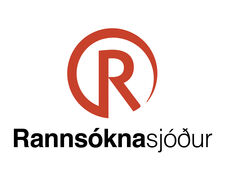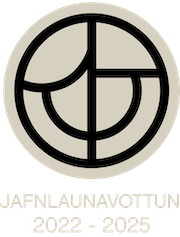Netsamskipti á Íslandi - málnotkun í óformlegu umhverfi netsins og viðhorf til hennar - verkefni lokið
Fréttatilkynning verkefnisstjóra
Aðalmarkmið doktorsverkefnisins var að rannsaka málnotkun Íslendinga á samfélagsmiðlum og mat málnotenda á slíkri málnotkun. Verkefnið rannsakaði málhegðun Íslendinga á Facebook með því að greina hvernig málhafar nýta sér mismunandi tungumál (eins og íslensku eða ensku), talmálseinkenni eða óyrt tákn (t.d. tjámynd) til að ná tilteknum samskiptamarkmiðum.
Niðurstöðurnar sýna að íslenska er mikilvægasta tjáningartækið í daglegum Facebook-venjum notenda. Enska er hinsvegar aðallega notuð til að víkka markhópinn og til að gera skilaboð aðgengileg fyrir þá sem tala ekki íslensku. Einnig er skapandi blöndun mismunandi tungumála og tákna oft notuð í þeim textum sem rannsakaðir voru. Málnotkun og val á mismunandi orðum, stafsetningu, táknmyndum, o.s.frv. er yfirleitt háð samskiptamarkmiðum málhafa og fela í sér spurningar eins og: „Til hvers er skilaboðunum beint?“, „Hvaða hópi fólks vil ég tengjast?“, „Hvernig vil ég virðast vera á netinu?“.
Verkefnið rannsakaði líka ómeðvituð viðhorf Íslendinga til formlegrar eða óformlegrar málnotkunar á netinu. Niðurstöður rannsóknarinnar sýna að, þrátt fyrir að daglegar venjur á Facebook séu með ýmsu móti, er óformleg málnotkun metin neikvæðar en formlegri stíll. Hins vegar sýna niðurstöðurnar líka að eldri málhafar (50+) eru jákvæðari gagnvart óformlegum vefstíl en yngri málhafar. Einnig eru málhafar með stúdentspróf eða BA/BS gráðu neikvæðari gagnvart óformlegum vefstíl en málhafar bæði með hærri og lægri menntun.
Heildarniðurstöður verkefnisins bæta við þekkingu okkar um málnotkun á netinu og gefa vísbendingar um hugmyndafræði og málloftslag á Íslandi. Litlar rannsóknir hafa verið gerðar hér á landi á málnotkun á netinu enn sem komið er. Þess vegna myndar þetta verkefni mikilvægt framlag til alþjóðlegra rannsókna á þessu sviði. Niðurstöður verkefnisins má nýta í framtíðarrannsóknum á málnotkun á netinu eða í viðleitini til að efla íslenska tungu á stafrænni öld og í hnattvæddum heimi.
Greinar
Væntanlegt. “Could I get some ‘Likes’ here?” Language attitudes towards Computer-mediated communication in Iceland.
2019 (væntanlegt). Polylanguaging and Social Network Sites. In K. Geyer, S. Kraeva, & E. Krasnopeyeva (Eds.), Linguistik International. Ausgewählte Beiträge des LingCol53: Peter Lang
2014. Insight into computer-mediated communication in Iceland. Orð og Tunga 16: 69-91.
English
The main objective of the PhD project was to investigate the linguistic practices of Icelanders in Social Media and people’s evaluations of such practices.
The project studied the linguistic behavior of Icelandic native speakers on Facebook by analyzing the ways in which speakers make use of different languages (such as Icelandic, English, etc.), colloquial speech, or semiotic features (e.g. emojis) to reach specific communicative goals. The results show that Icelandic is the most important resource in the user's daily Facebook practices. English, on the other hand, is mainly used to broaden the audience and make a message accessible to non-Icelandic speakers. Also, the creative combination of different languages and semiotic features is a common strategy in the research data. In general, language use and the choice of different words, spelling, emojis, etc. is dependent on the speakers' communicative goals which consider questions such as “To whom is the message directed?”, “With what group of people do I want to be associated?”, or “How do I want to be perceived online?”
Furthermore, the project studied subconscious language attitudes toward informal language use on the Internet. The results of this investigation show, that despite the daily practices of users, informal writing on the Internet is still perceived more negative than a more formal style. However, the results also show that older informants (50+) seem to be more positive toward an informal online style than younger informants. Also, informants with a high school degree or a Bachelor's degree rate informal online writing more negatively than informants with other educational backgrounds.
The overall results of the Ph.D. project add to our knowledge on language use in digital environments and give indications about language ideology and the linguistic climate in Iceland. As linguistic studies on language use online in Iceland are still few and far between, this project forms an important contribution to the international research body in the field. The results of the Ph.D. project can be applied in future research on language use on the Internet. They can furthermore be applied in the endeavors to foster Icelandic in the digital age and in a globalized world.
Publications
Forthcoming. “Could I get some ‘Likes’ here?” Language attitudes towards Computer-mediated communication in Iceland.
2019 (forthcoming). Polylanguaging and Social Network Sites. In K. Geyer, S. Kraeva, & E. Krasnopeyeva (Eds.), Linguistik International. Ausgewählte Beiträge des LingCol53: Peter Lang
2014. Insight into computer-mediated communication in Iceland. Orð og Tunga 16: 69-91.
Heiti verkefnis: Netsamskipti
á Íslandi - málnotkun í óformlegu umhverfi netsins og viðhorf til hennar/Computer-mediated
communication in Iceland - Language use in informal online environments and its
public perception
Verkefnisstjóri: Vanessa Monika Isenmann, Háskóla Íslands
Tegund styrks: Doktorsnemastyrkur
Styrktímabil: 2016-2017
Fjárhæð styrks: 11,563 millj. kr. alls
Tilvísunarnúmer Rannís: 163110


